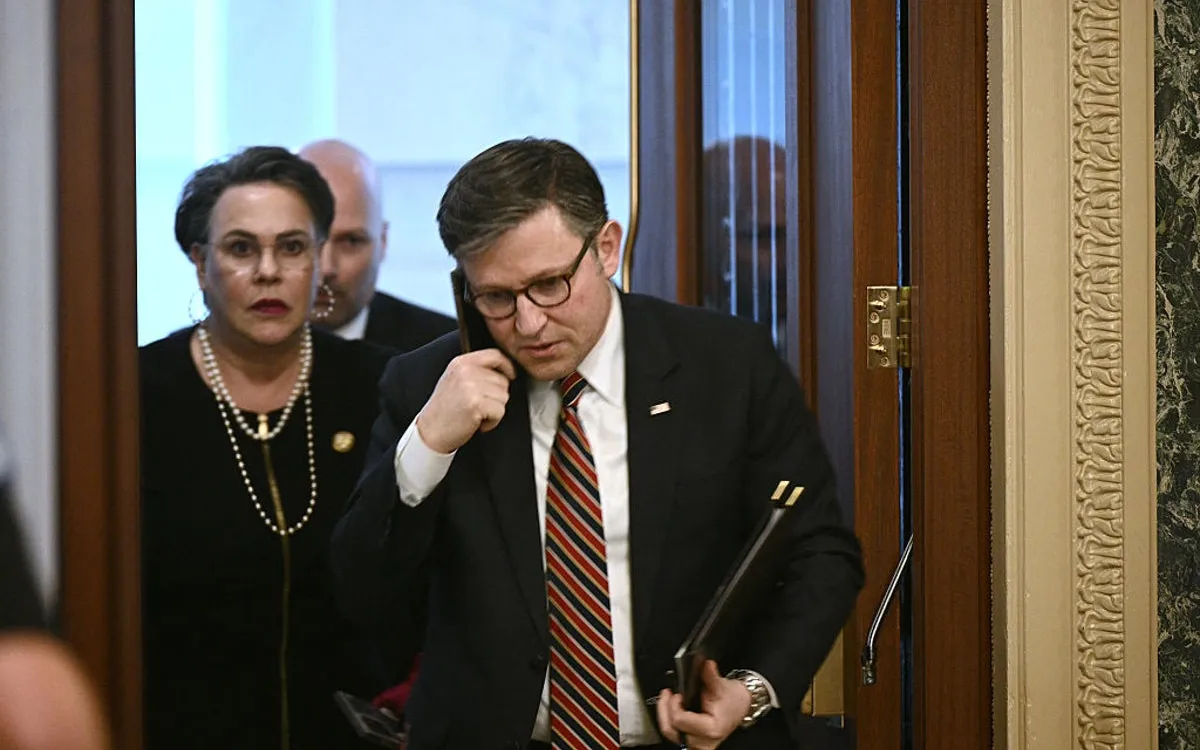
On Wednesday, Mike Johnson, the Republican Speaker of the House, made a significant decision to cancel plans for a crucial vote on a Republican budget resolution. This resolution was designed to serve as a vehicle for key components of Donald Trump’s agenda. The cancellation highlights the ongoing challenges faced by the GOP as they navigate internal divisions and external pressures.
Johnson had initially set up votes on a budget resolution crafted by Senate peers, marking a pivotal step in the reconciliation process for the Republican party. However, with the stakes high, Johnson faced the possibility of losing three votes from his caucus, which would jeopardize the success of the resolution. Reports indicated that over a dozen Republican members were likely or potential “no” votes, raising alarms about the viability of the proposal.
During the day, a preliminary rule vote passed with a narrow margin of 216-215, but it became evident that the necessary support for advancing the Senate framework was lacking. The atmosphere became tense as Johnson and House leadership postponed the vote for more than an hour, suggesting significant dissent among his colleagues.
In a statement to reporters after the vote was called off, Johnson expressed his intention to regroup and reassess the situation. He indicated that further discussions with Republican members would take place on Thursday morning, although some lawmakers voiced concerns about ensuring attendance for the crucial discussions. “We’re going to talk about maybe going to conference with the Senate or adding an amendment, but ... we are going to continue to move forward,” Johnson said, emphasizing his commitment to the process.
The White House had been exerting pressure on House Republicans to approve the Senate framework, but these efforts did not yield the desired results. President Trump, in particular, made multiple appeals for lawmakers to support the budget resolution, utilizing his social media platform Truth Social to rally support. During a White House event with NASCAR drivers, Trump praised Johnson, stating, “Mike Johnson is a great speaker. He’s done a fantastic job.”
As the situation unfolded, it became clear that divisions within the Republican caucus were a significant barrier to advancing the resolution. Various factions expressed differing priorities, leading to uncertainty about the outcome. Some lawmakers, particularly those from vulnerable districts, were apprehensive about potential political fallout from cuts to Medicaid benefits. Meanwhile, hardline conservatives criticized the Senate plan for not doing enough to address the federal budget deficit.
The Senate budget plan represents a marked shift from the House budget framework passed earlier in February, which aimed for over $1.5 trillion in spending cuts. In contrast, the Senate proposal sets a minimal floor of $4 billion in cuts, with the potential for higher targets. This divergence has fueled further debate among House Republicans, many of whom are unwilling to support measures that would reduce eligibility for crucial programs.
Despite the setbacks, Johnson remained optimistic about the future of the budget resolution earlier in the day, stating, “I think it is going to pass today.” He acknowledged the valid concerns of his colleagues but assured them that these issues would be addressed throughout the reconciliation process. The Speaker's willingness to take risks with votes, even those that may not succeed, underscores his determination to lead the party through these turbulent times.
As the Republican party faces ongoing challenges within its ranks, the coming days will be critical in determining whether they can unite behind a cohesive budget strategy that aligns with both their fiscal goals and the demands of their constituents.